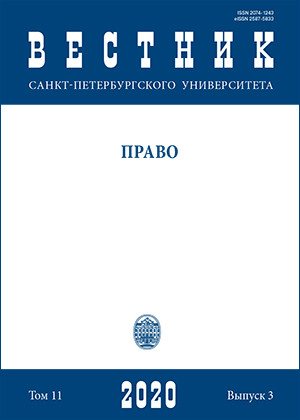The Fundamental doctrine of the criminalistics study of computer tools and systems as part of the theory of information and computer support for criminalistics activities
DOI:
https://doi.org/10.21638/spbu14.2020.315Abstract
The development of digitalization constantly generates new forms of crime, changes in the mechanisms of how they are committed, and concealment. The problem of combating such crimes is transnational in nature. This article considers the difficulties of creating the criminalistics study of computer tools and systems doctrine as part of the theory of information and computer support of criminalistics activities. The authors’ negative stance on the issue is indicated as well as the addition of definitions to the name of criminalistics that are related to the emergence of new objects of expertise: “electronic criminalistics”, “linguistic criminalistics”, “digital criminalistics”, and others. The unity of criminalistics as a science having its own subject, system, tasks, and objects is declared. The article substantiates the subject of the theory of criminalistics research of computer tools and systems as a system for gathering significant computer information on the basis of the knowledge of which technical and criminalistics methods, tools, techniques, and methods for identifying, fixing, and seizing evidence and orienting criminalistics information about computer tools are developed. In addition, the theory is based on systems in legal proceedings in criminal, civil, and administrative cases. The objects of this theory are computer tools and systems as well as the search and criminalistics evidence of information contained in them. Based on the doctrine of the criminalistics investigation of computer tools and systems, the foundations of a new area of criminalistics techniques and technology, as a system of scientific principles, are provided. This area centers around recommendations, tools, techniques, and methods designed to collect and study information about computer tools and systems. Digital footprints and the processes of their occurrence, transmission, and transformation in order to obtain evidence in legal proceedings, disclosure, and prevention of crimes, are included.
Keywords:
computer crimes, criminally significant information digitalization, digital footprints, computer storage medium, computer information carrier, input/output devices, information transmission devices
Downloads
References
Downloads
Published
How to Cite
Issue
Section
License
Articles of "Vestnik of Saint Petersburg University. Law" are open access distributed under the terms of the License Agreement with Saint Petersburg State University, which permits to the authors unrestricted distribution and self-archiving free of charge.






